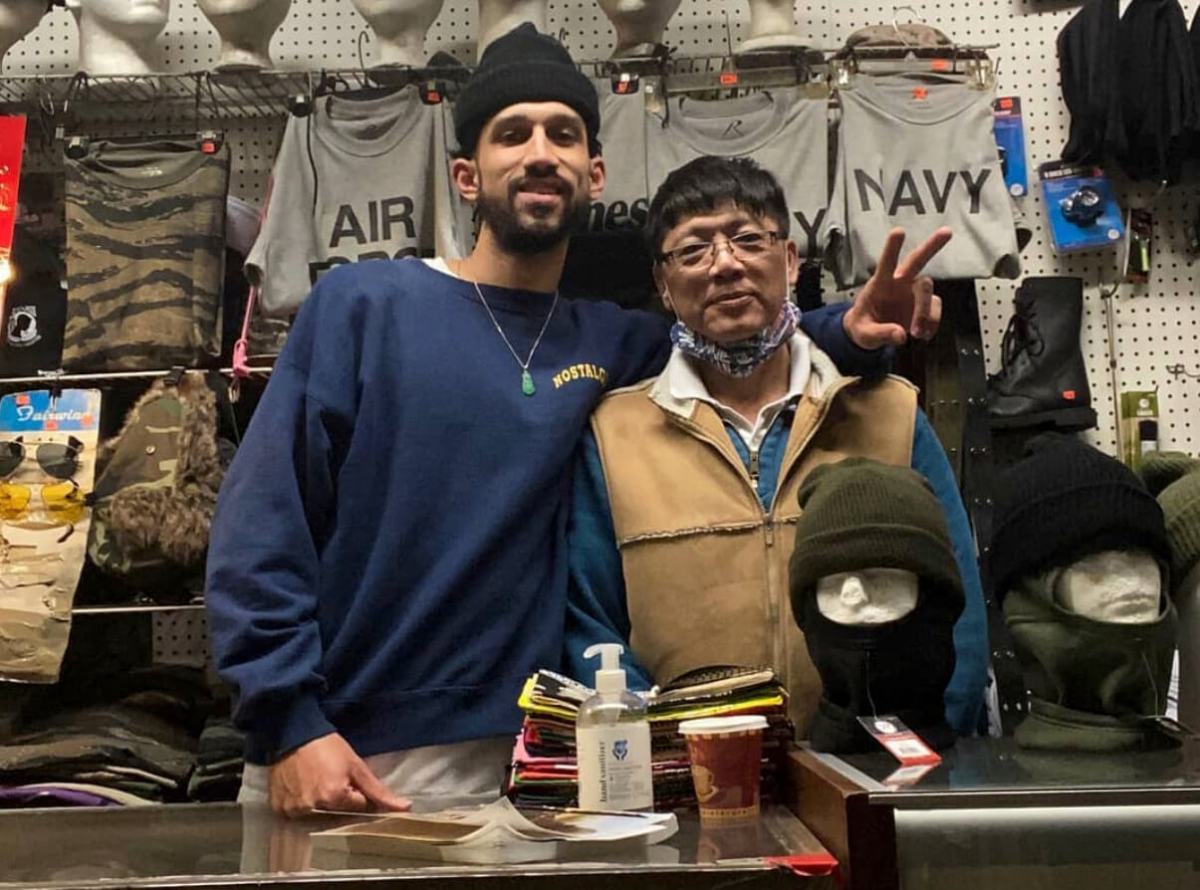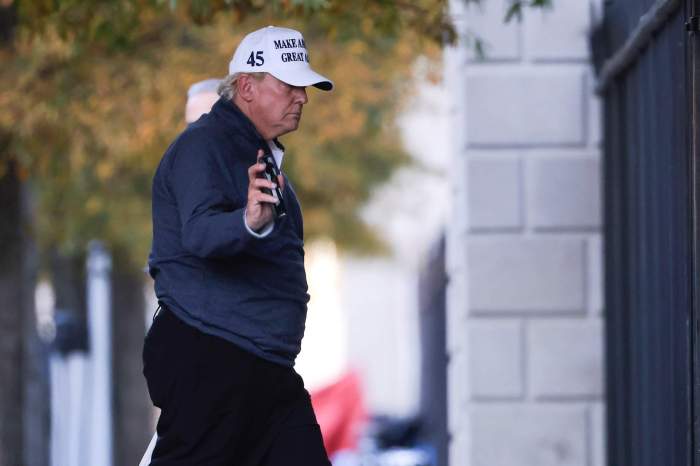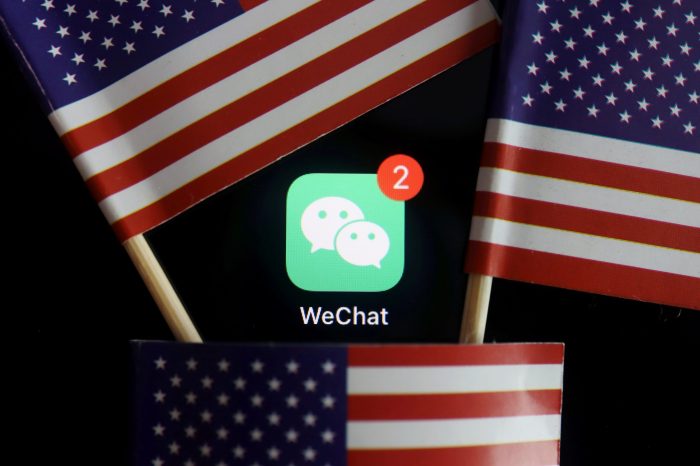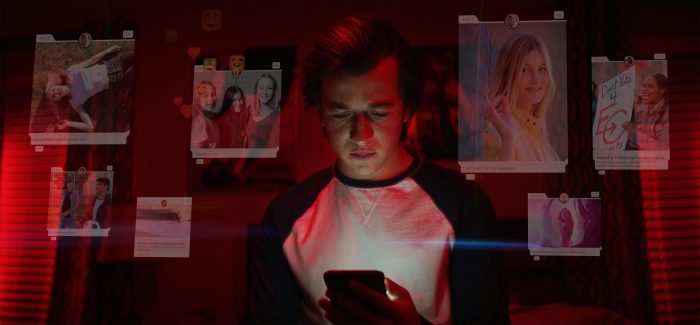For Lower East Side merchant Henry Yao, it all started with an Instagram post.
On a sweltering day in early July 2020, Yao was lying down on one of his large, military grade duffle bags. Wearing tan flip flops and a blue and white striped t-shirt, he absently flicked through his smartphone, waiting and hoping for someone, anyone really, to walk through his door.
Yao, a wiry 59-year-old man with a full head of jet black hair, is the owner and sole employee of Army & Navy Bags, a tiny military surplus store located on the Lower East Side of Manhattan. The modest storefront is tucked between a 99 cent pizza slice joint and the iconic appetizer shop Russ & Daughters.
The inside of the narrow store is organized chaos. Backpacks, jackets, t-shirts, hats, boots and duffle bags line the floor, hang from the ceiling and cover the walls, each crowding the other in a desperate bid for space. The display window, the only window in the store, is filled with rows upon rows of gloves and belts, so many that only a few ribbons of sunlight can filter through.
Although cramped and dim, the store has become a second home — and is in many ways a dream come true for its owner.
But on that soupy July day, Yao began to face the possibility that he was going to have to let go of his store. The lack of business due to the COVID-19 pandemic and the exorbitant rent – $6,500 a month – had turned Army & Navy Bags into a financial black hole, making it increasingly harder for Yao to take care of his wife and three children.
“It was too beautiful to let go. But reality told me that I could not survive the pandemic. I felt so bad because I love military stuff,” said Yao. “But love cannot bring money home.”
The COVID-19 pandemic has only furthered the decline of New York City’s mom-and-pop stores already feeling the brunt from giant online stores like Amazon and increasing rent prices.
“Mom-and-pop shops, it’s like a family,” said Yao. “It is a different feeling than ordering from Amazon. Mom-and-pop shops are important to the city, to neighborhoods.”
GoFundMe campaign to the rescue
On July 14, 2020, one of Yao’s loyal customers set up a GoFundMe campaign to help him stay in business. Although unfamiliar with the logistics of crowdsourcing, and skeptical that it would help him keep his store, Yao was grateful.
A week later, New York City’s “unofficial talent scout,” Nicholas Heller, known as New York Nico to his 800,000 followers, stopped by the store after hearing about it from a local photographer.
Heller snapped a picture of Yao, in his flip flops and striped t-shirt, and uploaded it to his Instagram. In the caption, he wrote a brief description of the store’s financial troubles and included the link to the GoFundMeCampaign in his Instagram bio. The effects were almost immediate.
In the span of just a few short days, Heller’s photo was reposted over 27,000 times. The GoFundMe campaign raised more than $25,000 and soon lines began to form outside of Yao’s store. Hundreds of people from around the world – from Australia, Denmark and France to Norway, England and Sweden – waited in 90 degree weather to buy a jacket or a bag or a sweater as a way to show support. In just two days, Yao had sold out his entire store. (As of March 2022, the GoFundMe campaign has raised over $61,000.)
“Sometimes you think it is the end but sometimes there’s a hope or maybe another opportunity,” he said softly. “I’m so lucky. All I can say is thank you. A thousand thank yous.”
Enthusiasm with a smile
It is not hard to see why a man like Yao is capable of impacting those around him.
We sat down together on one of the large, sand-colored duffle bags lining the store’s floor for close to two hours, swapping stories of our childhoods and our families. In between, he interacted with customers, always offering up a kind word, suggesting which clothing colors complemented their skin tones, and signing each interaction with an affectionate “take care” and “thank you for your support.”
Yao is fond of wearing black slides with white socks around the store in the colder months and navigates the cramped space with a practiced, fluid ease. He’s a diehard Mets baseball fan, and wore one of their face masks on the day of the interview.
In fact, Yao is not only a huge fan of sports, but is incredibly active himself and a decorated athlete to boot. He was a forward for his soccer team in high school, was a five year regional badminton champion and is an accomplished martial artist. He still practices kung fu everyday for 20 to 30 minutes because, he says, it keeps his mind disciplined and his body nimble.
“Do you know how flexible I am?,” he said with pride as he sorted a new shipment of gloves. “At my age, you cannot believe how flexible. If you saw it you would be like ‘holy moly!’”
Yao lives and breathes everything and anything military. He spent countless hours as a child in China’s Guangdong Province collecting Japanese and Chinese uniforms and weapons from World War II. At the time, the country didn’t have military surplus stores, so Yao bought his items off of friends’ parents and grandparents who had fought in the war.
“My mind is military. I love military stuff,” he said. “People, they buy toys. Me, I buy military stuff. I enjoy it. I love my job.”
Yao immigrated to New York City in 1982 at the age of 19 with his mother and siblings. That’s also around the time he picked up his smoking habit. Even though he knows it’s bad for him, it’s a guilty pleasure that he just can’t seem to let go of. He smokes Chinese cigarettes, not because he prefers them, but because a pack costs $3 while regular ones clock in at $14. Within the city, he quickly found a home in the Chinese community that was there for him when he got homesick or when his broken English made navigating the chaotic streets of New York difficult.
A whirlwind experience
Yao made his way to Army & Navy Bags in 2007, first starting off as a salesman and then eventually becoming the proprietor when its original owner, a Polish immigrant, retired. The store itself has been a neighborhood institution since 1959, and now Yao has also become a staple, known fondly for his kindness and his dedication to his business. (Although he lives in upstate New York, Yao drives close to five hours a day to and back from the store, which is open between 10 a.m. and 8 p.m., seven days a week.)
But in the past year and a half, Yao has become much more than the popular neighborhood mom-and-pop shop owner. He’s now a social media phenom, drawing scores of international television stations, newspapers and celebrities to his quaint doorstep.
A New York Times profile of him, published on the front page on Christmas Day 2020, had an instantaneous international reaction. For weeks after, Yao received over 800 Christmas cards in the mail from people around the world. Some contained heartfelt notes but most carried checks. He’s kept as many as possible as well as a worn copy of his feature that he shows every customer with pride.
Most recently however, Army & Navy Bags has welcomed the likes of rapper Lil Uzi Vert, who popped into the store in October 2021 with an entourage of four bodyguards and a black, bulletproof vehicle. Vert bought five of everything Yao had to offer, a purchase that came to $1,250. At the time, Yao had no idea that a celebrity was standing in his midst. All he could think about was the two bodyguards inside the store, the two standing guard outside, and the giant duffle bag on his counter filled with hundred dollar bills that Vert was using to pay Yao with.
Vert, who heard about Yao through Heller’s post, has visited the store five more times since October. He buys something after each visit. Yao only recently discovered his identity when he showed his eldest daughter a picture Vert’s bodyguard had snapped of the two of them.
“When he first came by, I thought I was in the deepest trouble. There were so many bodyguards,” said Yao as he sat on a duffle bag in his store. “I was shocked because [Vert] walked in and knew my name already!”
Yao still marvels at the turn his life has taken. He’s met incredible people, from all over the world, and has been able to keep his store alive because of their kindness. He’s currently focusing on staying positive by keeping sales up and continuing to form meaningful connections with anyone who walks through his door.
After all, if anyone can do it, it’s certainly Yao.


















